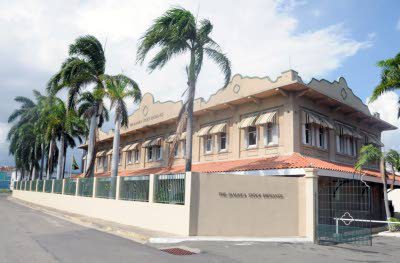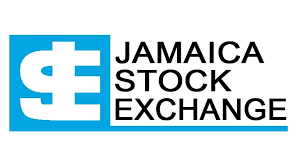Businessuite Markets
BARGAINS ON HARBOUR STREET Companies going cheap
Published
16 years agoon

“Those people who step up to the plate with confidence will come out of this crisis very well,”
Michael Lee Chin, Chairman NCB Group.
Hit hard by declining earnings, rapid depreciation of the Jamaican dollar, higher than projected interest rates and resulting tightened liquidity, 2008 proved to be the worst in the past six years for the many of the stocks listed on the Jamaica Stock Exchange. Overtaken by developments in the international and local markets, the three JSE indices failed to hold the position held in the early part of the year. Many of the Exchange’s blue chips traded at their lowest levels in 52 weeks as investors sold out and moved away from stocks to money market investments.
The report filed on the Jamaica Stock Exchange website for the end of December indicated that the year’s trading session reflected the following movement of the JSE Indices: –
* The JSE Market Index declined by 27,816.03 points (34.70%) to close at 80,152.03.
* The JSE Select Index declined by 944.23 points (47.57%) to close at 1,984.74.
* The JSE All Jamaican Composite declined by 32,787.93 points (44.31%) to close at 73,994.93.
Overall Market activity resulted from trading in 55 stocks of which 16 advanced, 35 declined and
4 traded firm. Market volume amounted to 2,295,666,264 units valued at over $24,066,168,185.51.
And the trend continues, with more companies trading even lower than the December 2009 closing figures. According to Steven Jackson writing recently in the Caribbean Business Report “The last time the market declined this much was in May 1996 at 12,936 points down 29 per cent year on year. But it is still better than in 1993 when the market lost 65 per cent of its value. It dipped from 32,421 points in January to 11,221 points by January 1994, losing over 90 per cent of its market capitalisation from J$1.45 billion to J$129.8 million according to Bank of Jamaica data.”
According to a leading brokerage firm in a published outlook on the economy for 2009, many of the quoted equity prices appear attractively priced relative to historical values. They also suggest that equity prices may well fall further before a rebound is seen, suggesting that even better bargains are on the horizon.
An interesting point raised by one analyst contact for this article was that “You don’t have to sell a lot of stock to impact price one way or the other.” Suggesting that small stock trades can and have impacted a company’s stock price, which is a concern for many and also implying an opportunity for manipulation. So the big question to be addressed by the Jamaica Stock Exchange is, should small trades be allowed to impact market prices. Businessuite understands that this concern has been raised by some companies. Donette Johnson, Senior Equities Trader at Jamaica Money Market Brokers, in responding to this point indicated that, “As a matter of fact, the JSE has attempted to address the perception of ‘manipulation’ on the market by introducing the average price being used as the closing price for the day. So no longer can brokers use 100 units at 11:59 to close stock prices at higher levels when indeed the market is trading at lower prices (this would give a misconception to investors and cause widespread disharmony among the investing public and even in some instances deter persons from even considering entering the market due to this perception and continued practice by brokers).”
But 2008 was a year when many of the companies listed on the Exchange saw the listed value of their stocks make drastic declines. Volumes traded was also on the high side, where in December for example Cable and Wireless Jamaica Ltd. was the volume leader with 503,461,572.00 units (21.93%) followed by Supreme Ventures Limited with 403,006,606 units (17.56%) and Jamaica Broilers Ltd. with 226,205,373 units (9.85%).
BOJ Impacts Market
According to financial analyst Fayval Williams, one of the contributing factors to the movement away from the stock market was the reversal in the local interest rate trend. Bank of Jamaica began raising interest rates in January, 2008. Interest rates were adjusted upwards by 1% across all tenors of BOJ instruments and have been rising since then making money market instruments more attractive versus stocks. Donette Johnson Senior Equities Trader Jamaica Money Market Brokers Limited, however saw it differently. “I beg to differ on this point, as interest rates started trending up as soon as the credit crunch hit in September ’08 and financial houses were converting left, right and center in order to meet margin calls being made by overseas brokers. As a result of this pressure to convert to US$ this put added pressure on the J$. So the BOJ responded to stabilise that currency market by increasing local interest rates.”
Another factor argued by Fayval Williams was the weakening economy going forward as investors realized that the US recessions would spill over into Jamaica via remittance, tourism and bauxite sectors. This spelt a more uncertain economic environment and weaker profits for companies, not a good backdrop for stocks.
Other investors have also argued supporting Williams’s view that the high interest rate, initiated by the BOJ impacted the stock market last year as a result investors not able to realise the comparable 25% return on stock investments shifted by selling stocks and putting the money in high BOJ induced interest rates. It was even argued by some that the actions by investors looking forward were pre-emptive as they opted to move funds now rather than wait in an uncertain environment.
With the prevailing tight liquidity conditions on the international markets, the Government of Jamaica has increasingly turned to the local market to meet funding requirements. This creates added impetus for further increases in interest rates locally and movement away from stocks. (Note: interest rates started to trend downwards sometime in March).
Marlene Street-Forrest General Manager of the Jamaica Stock Exchange was recently quoted as saying “Hardly any analyst would be able to say to you specifically when you are going to see a recovery. We are hoping it will rebound by next year but I have not applied any scientific basis.” (Did you ask Mrs. Street-Forrest for a guesstimate on the performance of the indices this calendar year end 2009?).
Street-Forrest blamed the ongoing decline in market performance on the global meltdown, high interest rates and its crippling spill over effect on company earnings in 2008.
“We have seen share prices at one of the lowest in recent times. This can be accounted for by the general bear market that we have seen that has continued over the last two years and has been coupled by the global financial crisis. Also, some of the companies financial returns posted lower than projected,” she said adding that now is the time to buy stocks.
The economic environment will affect the speed of recovery she stated, adding that the 2009/10 budgetary measures are being analysed to determine its effect on business.
The role of interest rates
“Interest rate reduction will play a factor in the demand for stocks. Next we are looking at the situation in the global arena and the recovery in overseas equity markets. Markets are based on confidence and the extent that investors feel there is more risk in the equities market then they will tend to shy away from it,” she argued.
As one high profile trader indicated “Stocks go up when companies are reporting rising profits but companies were reporting negative company profits going forward as people were buying and consuming less so this was also a contributing factor in my shifting funds away from stocks last year.”
Consumer Confidence Falls
The recently published Jamaica Chamber of Commerce (JCC) consumer confidence report said consumers judged the current state of the economy more negatively than the third quarter of 2008, these downbeat assessments did not cause pessimism about future economic prospects, It was reported that one third of all consumers at the close of 2008 felt that the economy had worsened, up from one in four at the start of the year. At the same time the proportion of consumers that anticipated better conditions remained largely unchanged, the report added.
However, Professor Richard Curtin, head of survey research unit at the University of Michigan, sees the optimism as somewhat surprising given the global economic slowdown and Jamaica’s dependence on tourism and remittances. “Consumers do not expect the kind of slowdown in the economy that I think is going to happen,”
Companies respond
As early as mid 2008 it was quietly reported that companies had already started to respond to the reduction in their income and profitability by laying off staff, seeking increased efficiencies in operation and purchases coupled with the overall use of assets. Going forward into 2009 and early 2010 financial institutions will see a further slowing down of their earnings as loan portfolios are not expected to grow at previous pace due to all the aforementioned factors. Manufacturing companies it is argued should benefit from moderation in prices, but will be adversely affected as consumers cut back on consumption due to lower disposable incomes.
Pessimistic Outlook Hides Value
“Wealth is created by owning businesses”.
Michael Lee Chin, NCB Group Chairman in a recently published article in the Caribbean Business Report recalls that about 10 years ago many Jamaican assets were snapped up by our Caribbean ‘brethren’ but with stock prices down all over the world he believes Jamaican companies now have an opportunity to buy back those companies and continue to make them profitable.
“If you are a foreign investor who bought a Jamaican asset 10 years ago, even though the asset as measured in Jamaican dollars has done well, by foreign currencies and hard assets that’s a different matter.
If you look at stock prices of the likes of Caribbean Cement, NCB, Grace, Guardian, they are now low. The question though is: who has money to acquire these assets? Who is liquid? Well, our pension funds are liquid. Our pension funds have gotten into the habit of investing in repos and government paper. Now that is not investing.
The pension managers are not optimising the wealth creation portion of their portfolios. Over the long haul, equities have always proven to be the best asset class, so now is a great time to be buying them because they are historically cheap.”
Where are they?
But where exactly are the bargain buys? Michelle Hirst, Research Manager at Stocks & Securities Ltd (SSL) thinks the following stocks are at bargain BUYS, plus just as important, strong business models, strong barriers to entry, strong management and above average long-term growth rates with a proven track record:
o Pan-Jamaican Investment Trust
o GraceKennedy
o Salada Foods Jamaica Ltd
o Jamaica Producers
o Jamaica Broilers Group
o Scotia Group Jamaica
o Desnoes & Geddes
However, she continues “ we do think that local equity prices still have an inherent short-term (one year or less) downside risk of 20-30% from current price levels, dependent on how worse the credit crisis gets, recession, etc, where the DOW heads to, which we anticipate to be 6,600 points or less.
Therefore, although SSL does not advise clients to try and time the market, we recommend to cautiously BUY the above levels/positions and if we see for example Pan-Jam trade down to 18-20, we would recommend more aggressive purchasing here.
Also note another negative that always affects our market in the short-term is high interest rates as investors’ put funds to work in fixed income v. local equities. For the long-term YES the above equities show strong value at current prices meaning an investor to hold for 3 years or longer from “t”.”
According to one leading brokerage firm, unless there are clear signs of recovery in corporate profits, stability in the foreign exchange markets and lower interest rates, causing stock prices to move back up, investors will not go back to the equities market. They also suggest that if the local dollar continues to depreciate at its current pace, the possibility still exist that interest rates could go higher.
So with corporate profits expected to weaken in 2009 as further softening in consumer spending take place the projection is for flat market conditions in 2009.
For many this downward movement in stock prices was a direct response to the local and global economic crisis, the upward shift in interest rates and the continued fallout from the failed alternative investment schemes. But for the calculated few with cash, this is an opportunity to make a move on some bargain buys on Harbour Street. The expectation is that the present financial crisis will be over before the end of 2010 if not before, so buying these companies now and holding the stock until they move rapidly back up will give cash hoarding investor’s significant return on their investments. The big question now is other than institutional investors, who has that kind of cash? BM
Additional Source; Compiled from various published and internet sources
You may like
-


The Strategic Importance of Investor Communication and Recommendations for Caribbean Listed Companies
-


JSE to Launch Micro Market in April 2026
-


JSE launches Green Bond Plus Platform
-


The Smart Way to Invest
-


Can Investing Solve Climate Change?
-


GCT Exemption Threshold for MSMEs Increased to JA$15 Million
Businessuite Markets
Businessuite Cover Story: Wigton’s Bold Bet – Could Tropical Battery Be the Key to Its Caribbean Clean Energy Empire?
This is exactly the model that global energy giants are pursuing: controlling the entire clean energy value chain to drive long-term sustainable revenues.
Published
2 days agoon
July 3, 2025

Mr. Gary Barrow, CD
Chief Executive Officer Wigton Energy Limited (WIG)
In a bold move set to redefine Jamaica’s energy and electric vehicle (EV) landscape, Wigton Energy Limited (WIG) has taken control of Flash Holdings Limited, raising its stake to 51 per cent. This acquisition, while strategic in accelerating the roll-out of EVs under subsidiary Flash Motors Company Limited (FMCL), also signals a deeper ambition: Wigton’s emergence as the Caribbean’s leading multi-solution renewable energy powerhouse.
Yet behind the headlines of Wigton’s pivot from its windfarm legacy lies an even more intriguing opportunity – one involving Tropical Battery Company Limited, the decades-old Jamaican battery and solar energy firm currently in the throes of a J$1.79-billion (US$11.09-million) secondary share offering.
The offering, extended for a second time to July 4, is designed to reduce debt and graduate the company from the Junior Market to the Main Market of the Jamaica Stock Exchange – a critical step in Tropical Battery’s quest to list on Nasdaq within the next three to five years.
The question on the minds of investors and analysts is simple: Could Tropical Battery become Wigton’s next big strategic play?
From Wind to Multi-Solution Renewables
Founded as Wigton Windfarm, the company rebranded in late 2024 to Wigton Energy Limited, reflecting a strategic pivot towards diversified clean energy solutions. Alongside wind, Wigton is now advancing solar photovoltaic (PV) projects, battery storage systems, and EV infrastructure – creating a full-suite renewable energy model.
The acquisition of Flash Holdings is a testament to this vision. Wigton’s initial 21 per cent stake, valued at J$112 million (just over 1 per cent of its total assets), was symbolic – an entry point into the EV market. The June 2025 expansion to majority control demonstrates serious intent to scale electric mobility, not only distributing EVs but enabling the charging infrastructure needed to drive adoption across Jamaica and, ultimately, the region.
Tropical Battery’s Debt, Expansion, and Nasdaq Dreams

Alexander Melville Chief Executive Officer Tropical Battery Company Limited
Meanwhile, Tropical Battery is fighting its own battles. Founded in 1950, the company has evolved into an integrated battery distributor, solar energy provider, and EV solutions player, with strategic acquisitions in Silicon Valley (Rose Electronics) and the Dominican Republic (Kaya Energy).
Yet its rapid expansion has come at a cost. Tropical is carrying significant debt, including a US$9.5-million bridge loan from CIBC Caribbean Bank and a maturing J$300-million bond. The current APO seeks to raise at least J$1 billion to stabilise its balance sheet, improve working capital, and clear the path to Main Market graduation and Nasdaq listing.
But with two extensions announced in quick succession, questions loom about investor appetite. Institutional investors have reportedly requested more time for internal processes – a potential window for strategic partners like Wigton Energy to step in.
By participating significantly in Tropical Battery’s APO, Wigton could secure a meaningful minority stake – potentially 10-20 per cent – positioning itself on Tropical’s board and integrating the firm’s battery manufacturing and distribution network into Wigton’s renewable energy and EV ecosystem.
Why This Alliance Makes Sense
On paper, Wigton and Tropical Battery are perfectly complementary.
| Wigton Energy | Tropical Battery |
| Wind, solar, BESS, EV distribution | Batteries, solar, EV services |
| Local grid expertise, renewable projects | US and regional market access, battery manufacturing |
| Expansion capital and project development capability | Need for strategic investor to reduce debt and scale |
A Playbook for Execution
Strategic Capital Injection: Wigton could anchor Tropical’s APO, sending a strong market signal and stabilising Tropical’s financial base.
Board Influence & Governance: Securing a board seat would align Tropical’s expansion with Wigton’s regional clean energy goals.
Joint Ventures for EV Charging: Tropical’s battery and solar solutions combined with Wigton’s utility-scale renewable projects could fast-track the installation of EV charging stations powered by clean energy – a win-win for emissions goals and revenue streams.
BESS & Grid Services: As Jamaica’s grid modernises, battery energy storage systems (BESS) will be critical for stabilisation and integration of renewables. Wigton and Tropical are both invested in this space, but collaboration could enable larger projects with better financing terms and risk sharing.
Nasdaq Roadmap: Tropical’s ambitions to list on Nasdaq could be strengthened by Wigton’s institutional backing, while Wigton benefits from the valuation uplift of an equity partner expanding into North America.
Risks and Realities
Of course, execution risks remain. Tropical’s debt burden must be managed carefully to avoid operational strain. Cultural and operational integration will require disciplined governance structures. For Wigton, investing in a non-controlling stake carries the challenge of influencing strategy without direct operational control – a delicate dance that only strong board-level partnerships can navigate.
The Bigger Picture
Ultimately, the strategic logic is compelling. Together, Wigton and Tropical Battery could create a vertically integrated clean energy and EV solutions group with:
✅ Renewable generation capacity
✅ Battery manufacturing and storage solutions
✅ EV distribution and charging infrastructure
✅ Access to regional and North American markets
This is exactly the model that global energy giants are pursuing: controlling the entire clean energy value chain to drive long-term sustainable revenues.
“The Caribbean Tesla?”
 As the Caribbean accelerates its renewable energy transition, the region needs companies with the vision, capital, and integration capability to deliver clean energy solutions at scale. Wigton’s rebranding is more than cosmetic; it is a bet on becoming the Tesla of the Caribbean – not only in EVs, but in energy storage, solar, and grid services.
As the Caribbean accelerates its renewable energy transition, the region needs companies with the vision, capital, and integration capability to deliver clean energy solutions at scale. Wigton’s rebranding is more than cosmetic; it is a bet on becoming the Tesla of the Caribbean – not only in EVs, but in energy storage, solar, and grid services.
By partnering with Tropical Battery, Wigton could create an ecosystem that powers Jamaica’s homes, businesses, and vehicles with clean, resilient energy – a transformative step towards the island’s 50 per cent renewable energy target by 2030.
And perhaps, in the years ahead, when investors search for the Caribbean’s first clean energy unicorn, it will be this strategic alliance they point to as the moment the region’s energy future changed forever.
Foot Notes
Company Overviews & Recent Moves
Wigton Energy Limited (WIG)
- Rebranded from Wigton Windfarm in November 2024 to reflect its pivot toward diversified renewables—wind, solar, batteries, and now EVs.
- Broadening into solar PV (won ~50 MW project in 2024), and developing battery storage alongside EV infrastructure.
- June 2025: boosted its stake in EV distributor Flash Holdings from 21% to 51%, aiming to fast‑track EV rollout via Flash Motors (FMCL). Wigton also provided corporate guarantees for FMCL loans
Tropical Battery Company Limited
- Jamaica-based battery and solar energy firm, listed in 2020; now distributes Mac Battery brand, solar solutions, and even sells Tesla vehicles
- Acquired Silicon Valley-based Rose Electronics and Dominican solar firm Kaya Energy; revenue doubled in late 2024 but profit fell due to debt
- Currently launching a J$1.79 billion (~US$11M) secondary share offering—now closing July 4—aimed at trimming debt and enabling migration from JSE Junior to Main Market, with Nasdaq aspirations in 3–5 years
Business Model Synergies
| Area | Wigton Energy | Tropical Battery |
| Core Offering | Wind, PV, storage, EV distribution | Automotive batteries, solar, energy storage |
| Geographic Reach | Jamaica (grid), regional expansion | Jamaica, US (Silicon Valley), Dominican Rep. |
| Debt/Capital | Asset-based growth, moderate debt | Significant debt load, seeking equity raise |
| Strategic Goals | Full-suite renewables + EV market | Debt elimination, market upgrade, Nasdaq prep |
There’s a strong alignment in battery energy storage systems (BESS) and EV charging infrastructure. Tropical’s access to the US market and grid storage tech aligns with Wigton’s ambition to become a “multi-solution renewable provider.”
Could Tropical Battery Be an Acquisition or Investment Target?
Acquisition—Full or Partial
Full acquisition improbable: Tropical’s valuation (~US$11M) and upcoming debt clearance means it’s not distressed enough to sell entire control cheaply.
Strategic merger: WIG could acquire a controlling minority stake—e.g., buying current shareholders’ stock and participating in the APO. This could integrate Tropical’s distribution and manufacturing capacity into Wigton’s ecosystem.
Participating in APO
With WIG’s guidance, investing in the July 4 APO (minimum J$1B) positions its shareholding favorable—potentially 10–20%+ depending on uptake.
This gives Wigton influence in Tropical’s board and strategic decisions without full takeover.
Strategic Alliance Framework
Coordinated capital raise: Wigton leads or coordinates participation in the APO, signalling stability and boosting investor confidence.
Cross‑shareholding : Tropical could take a stake in FSMC (Flash Motors), aligning EV ambitions and creating a shared EV–battery value chain.
Joint BESS & EV infrastructure roll‑out: Co-develop charging & storage solutions across WIG’s solar/Wind sites and Tropical’s commercial distribution footprint.
Regional market expansion: Tropical supports EV battery servicing and solar projects from its Jamaica/US base, while Wigton provides local grid integration and regulatory experience.
IPO/Nasdaq roadmap: Wigton’s participation helps Tropical graduate to JSE Main then aim for Nasdaq—giving Wigton a stake in a growth IPO narrative.
How This Can Be Executed
Due diligence: Wigton assesses Tropical’s balance sheet post-IPO, tech integration capabilities (e.g., Silicon Valley assets), and debt reduction efficacy.
Negotiation: Restructure APO conditions to secure stakes with board representation.
Legal integration: Form joint ventures for EV charging deployments and BESS installations, sharing risk and scaling faster.
Capital partnership: Align Tropical’s Nasdaq ambitions with Wigton’s institutional backing—opening a new funding channel.
Summary
While a full takeover of Tropical Battery isn’t likely and may not be necessary, strategic participation in its APO offers Wigton:
- Entry into battery manufacturing & EV services.
- A way into the US through Silicon Valley tech.
- Leverage Solar/BESS synergy.
- A shot at future upside via Tropical’s equity if it lists on Nasdaq.
Business Insights
Businessuite Cover Story: Too Much Power? Governance Risks Rise as Tyrone Wilson Consolidates Leadership at Kintyre and Visual Vibe
Introducing a non-executive Chair, appointing dedicated executives for strategic verticals, and strengthening board committees are proven routes to balancing entrepreneurial dynamism with fiduciary responsibility.
Published
4 days agoon
July 1, 2025
• Mr. Tyrone Wilson, who currently serves as Chairman, President & CEO of Kintyre Holdings (JA) Limited, and Chairman of Visual Vibe, has formally assumed the additional role of Chief Executive Officer of Visual Vibe, a wholly owned subsidiary of the Company.
• Ms. Jasmin Aslan has been appointed as Chief Business Officer (CBO) of Kintyre Holdings (JA) Limited, effective July 1, 2025.
• Mr. Andrew Wildish has resigned from his role as Chief Investment Officer of Kintyre Holdings (JA) Limited, effective June 30, 2025. The Company’s investment strategy will now be assumed by Chairman, President & CEO Tyrone Wilson, and will be supported by the Investment Committee of the Board, chaired by Mr. Nick Rowles-Davies.
 When Mr. Tyrone Wilson, Chairman, President, and CEO of Kintyre Holdings (JA) Limited, stepped into the additional role of Chief Executive Officer at Visual Vibe—alongside his existing portfolio—industry observers took note. His move, following the resignation of Chief Investment Officer Andrew Wildish, now consolidates strategic, operational, and governance control under one leader across the two connected companies.
When Mr. Tyrone Wilson, Chairman, President, and CEO of Kintyre Holdings (JA) Limited, stepped into the additional role of Chief Executive Officer at Visual Vibe—alongside his existing portfolio—industry observers took note. His move, following the resignation of Chief Investment Officer Andrew Wildish, now consolidates strategic, operational, and governance control under one leader across the two connected companies.
While some argue that this concentration of power streamlines decision-making, particularly in smaller or fast-moving firms, global governance standards paint a starkly different picture.
From the UK’s Cadbury Code to the OECD and US Dodd-Frank regulations, best practice guidelines consistently recommend separating the roles of Board Chair and CEO. The rationale is simple: independent oversight safeguards shareholders by ensuring that strategic decisions, executive compensation, and performance evaluations are objectively scrutinized. Harvard Law’s corporate governance research found that dual-role companies often pay more to their top executives and face elevated ESG and accounting risks, with lower long-term returns to shareholders.
In Mr. Wilson’s case, the risks are amplified by his assumption of the departed CIO’s investment strategy responsibilities. While an Investment Committee chaired by Mr. Nick Rowles-Davies will provide support, the absence of a dedicated CIO raises questions about execution bandwidth, focus, and strategic continuity.
His move, following the resignation of Chief Investment Officer Andrew Wildish, now consolidates strategic, operational, and governance control under one leader across the two connected companies.
Recent global examples demonstrate the potential fallout:
At Boeing, CEO Dennis Muilenburg’s dual role contributed to oversight failures during the 737 MAX crisis.
Starbucks faced shareholder pressure to separate Chair and CEO roles held by Kevin Johnson and later Laxman Narasimhan.
At Volkswagen, Oliver Blume’s simultaneous leadership of VW Group and Porsche raised warnings of strategic drift and governance conflict.
For shareholders, these scenarios underline a core truth: Checks and balances matter. Without an independent Chair to challenge decisions, or a standalone CEO focused solely on operational delivery, companies risk poor accountability, strategic blind spots, and diminished investor confidence.
Furthermore, frequent senior departures, as seen with Wildish’s exit, create instability, potentially eroding morale, institutional knowledge, and external credibility. For companies like Kintyre and Visual Vibe, operating in competitive markets requiring agile yet well-governed leadership, the tension between efficiency and accountability has never been more stark.
The path forward? Independent governance experts recommend immediate board-level evaluation of leadership structures to ensure robust oversight. Introducing a non-executive Chair, appointing dedicated executives for strategic verticals, and strengthening board committees are proven routes to balancing entrepreneurial dynamism with fiduciary responsibility.
At the heart of it all lies a question shareholders must ask: When one person wears too many hats, who holds them accountable?
Foot Notes
Governance Best Practices: CEO & Chair Separation
Independence & Oversight
– Combining CEO and Chair roles concentrates power in one person, weakening board oversight and independent challenge
– Governance codes worldwide (UK Cadbury, OECD, Dodd-Frank, etc.) recommend separate roles to avoid conflicts of interest and boost board independence
Costs & Performance
– Studies show companies with dual roles tend to pay more to the leader, exhibit higher ESG and accounting risks, and often deliver lower long‑term returns
Efficiency vs. Accountability
– Proponents argue unified leadership can streamline decision-making, especially in small, fast-moving or crisis settings
– Critics note that efficiency gains are outweighed by weakened accountability, less board challenge, and riskier executive decisions
Risks of Tyrone Wilson Holding Multiple Executive Roles
1. Conflict of Interest & Oversight Blind Spots
As CEO, President, and Board Chair of Kintyre, plus CEO of Visual Vibe, Mr. Wilson controls operational, strategic, and governance levers. This vertical integration drastically reduces independent oversight.
As BoardEvals points out, the Chair should be able to “challenge the CEO’s performance”—impossible when they’re the same person
2. Governance and Shareholder Accountability
– The Board’s duties include setting senior pay and evaluating leadership. With a unified Chair/CEO, Mr. Wilson effectively oversees his own compensation and reviews—undermining fiduciary trust
– Transparency risks arise if disclosures and rationale for dual roles aren’t clearly communicated to shareholders, as required under Dodd‑Frank §972 .
3. Execution Risk & Burnout
Fulfilling multiple demanding roles reduces bandwidth and focus. There’s evidence dual roles can dilute effectiveness and increase error risk .
4. Investor Confidence & Market Perception
– Majority of global investors favor role separation. Even large US firms are moving in that direction (44% of S&P 500 now combined vs. 57% a decade ago)
– Cases like VW (Blume), Starbucks (Niccol), Boeing (Muilenburg) show shareholders raising flags when executives take on both roles
Executive Departures & Instability
Andrew Wildish’s departure as CIO on June 30, replaced by Mr. Wilson & an Investment Committee, indicates a consolidation of high-level roles. Multiple senior exits can signal:
Leadership instability, undermining investor confidence and organizational clarity.
Strategic drift, especially in areas requiring specialized expertise.
Increased “agency” and “entrenchment” risk – where board oversight may be compromised by concentrated executive power .
Shareholder Considerations
Investors should be concerned when:
Checks and balances are diminished
With one executive occupying so many strategic and governance roles, board objectivity may be compromised.
Succession and crisis management are jeopardized
Who leads if Mr. Wilson is unavailable? What happens if rapid decisions are needed? Lack of emergency backup risks business continuity.
Specialized oversight is reduced
Investment strategy, compliance, audit—all risk oversight gaps when not handled by dedicated, independent executives.
External advisors step in
If retained, external governors may mitigate some risks—but at added cost and complexity.
Businessuite Markets
FosRich Reports Operating Loss of $68.6M, EPS Drops to Negative $0.01
The operating loss generated for the period was $68.6 million, compared to the profit of $32.9 million reported for the prior reporting period resulting in loss per stock unit of $0.01 compared to a profit per stock unit of $0.01 at March 2024
Published
1 week agoon
June 27, 2025
Cecil Foster Chief Executive Officer for FosRich Company Limited has released the following the unaudited results of FosRich for the three months ended 31 March 2025 and to report on the performance of FosRich.
Financial Highlights
• Revenues – $852.9 million compared to $859.8 million in the prior period.
• Gross profit – $305.6 million compared to $389.5 million in the prior period.
• Net (loss)/profit – ($68.6) million, compared to $33.0 million in the prior period.
• Earnings per stock unit – (-1) cent compared to 1 cent in the prior period.
Business Overview
 FosRich is primarily a distributor of electrical, lighting, and solar energy products. FosRich aims to differentiate itself from its competitors in the Jamaican marketplace by providing a quality and cost effective service, and by collaborating with clients on technical solutions. FosRich partners with large global brands seeking local distribution such as Huawei, Philips Lighting, Victron Energy, Siemens, NEXANS and General Electric. FosRich has a staff complement of two hundred and forty (240) people across ten (10) locations in Kingston, Clarendon, Mandeville, and Montego Bay. FosRich also has a team of energy and electrical engineers who offer technical advice and install solar energy systems, solar water heaters and electrical panel boards.
FosRich is primarily a distributor of electrical, lighting, and solar energy products. FosRich aims to differentiate itself from its competitors in the Jamaican marketplace by providing a quality and cost effective service, and by collaborating with clients on technical solutions. FosRich partners with large global brands seeking local distribution such as Huawei, Philips Lighting, Victron Energy, Siemens, NEXANS and General Electric. FosRich has a staff complement of two hundred and forty (240) people across ten (10) locations in Kingston, Clarendon, Mandeville, and Montego Bay. FosRich also has a team of energy and electrical engineers who offer technical advice and install solar energy systems, solar water heaters and electrical panel boards.
Our current-quarter numbers continue to be affected by the substantial fall in PVC and solar panel cost on the world markets. What this meant for us, is that despite achieving higher sales volumes, because our price reductions are passed on to our customers, we have achieved lower total sales income on these important lines of business. In addition, we were also affected by the slowness in housing-starts locally, caused primarily by the considerable increase in interest rates in Jamaica in the current period when compared to the prior period. We have not yet begun to benefit from the recent reductions in interest rates.
More importantly, our current quarter was adversely affected by international problems in the shipping industry, that continue to be affected by developments related to the operation of the Panama Canal. This resulted in significant delays in shipment for both finished goods and raw material. Raw material delays significantly interrupted our manufacturing operation during the quarter, which limited our ability to keep the market supplied with these needed products.
With the recent developments in the USA market, our global partners, in seeking to broaden and deepen their relationships with their non-USA customers, have offered more favourable credit terms to us, which should provide measurable benefits, going forward.
Income Statement
Income
The company generated income for the first quarter of $852.9 million compared to $859.8 million in the prior reporting period. Gross profit for the first quarter of 2025 was $305.6 million compared to $389.5 million for the prior reporting period. The main revenue drivers were Electrical and Hardware lines of business.
Administration Expenses
Administration expenses for the year-to-date was $337.4 million, reflecting a 12% increase on March 2024’s $301.6. The increased costs were fuelled primarily by increased staff related costs for increased staffing, increased travelling and motor vehicle expenses, increased insurance costs due to increases both in policy renewal rates and exposure, increased security cost due to additional locations and increased depreciation due to additional fixed assets.
Finance Cost
Finance cost for the year-to-date was $44.2 million compared to $$55.7 million in the prior period.
Net Loss
The operating loss generated for the period was $68.6 million, compared to the profit of $32.9 million reported for the prior reporting period resulting in loss per stock unit of $0.01 compared to a profit per stock unit of $0.01 at March 2024
Balance Sheet
Inventories
Since the start of the year, there has been some run-off of inventories, primarily due to the shipping issues discussed above. The company continues to proactively manage inventory balances and the supply-chain, with a view to ensuring that inventory balances being carried are optimised, relative to the pace of sales, the time between the orders being made and when goods become available for sale, to avoid both overstocking and stock-outs. Monitoring is both at the individual product level and by product categories.
Receivables
We continue to actively manage trade receivables with an emphasis being placed on balances in the over 180-day bucket. We have implemented strategies to collect these funds as well as to ensure that the other buckets are managed. We have re-evaluated all credit relationships. Where necessary, credit limits have been reduced and credit periods shortened. For some inventory items, we have instituted seven (7) day credit or cash. Sixty-four (64%) of receivables are within the current to 60-day category, mirroring December 2024. Receivables also include advance payments made to foreign suppliers for the increasing levels of inventories required to support our sales strategy.
Trade Payables
Our trade payables are categorised by foreign purchases, local purchases and other goods and services. While we have concentrated primarily on the foreign payables, as the bulk of our inventories are sourced from overseas. we continue to manage payables, for the most part, within the terms given by our suppliers.
Non-current Liabilities
Non-current liabilities have reduced by $101 million due to the run-off and maturing of facilities. Liquidity At balance sheet date the excess of current assets over current liabilities amounted to $843 million (31 December 2024 – $1,012 million), with the current ratio being 1.36:1 compared to 1.43:1 in December 2024. It is expected that FosRich will continue to be able to generate sufficient cash to meet obligations when they fall due.
Shareholders’ Equity
Shareholders’ equity now stands at $1,930 million, compared to $1,999 million on 31 December 2024. On 31st March 2025 there were 5,266 shareholders, compared to the 5,318 on 31 December 2024.
Other Matters

- New Activities Construction of our new FosRich Superstore & Corporate Offices at 76 Molynes Road is advanced, with completion date now projected to be Q3, 2025
- We have halted our plans to enter the United States market, until further notice.
- We continue to implement the specific strategies as outlined within our strategic plan, with a view to making the group more vertically integrated.
- We are cognizant that despite the challenges ahead within our local operating space and the wider global space, we have the right talents and leadership to deliver on our plans for the ensuing period. We will continue to execute our plans to ensure that we remain competitive and deliver value solutions to our customers.
As we report on the performance of FosRich, we thank our shareholders, employees, customers, and other stakeholders for their support as we continue to expand our business and bring greater value to our various stakeholders.
For More Information CLICK HERE
Businessuite Markets
CAC 2000 Back to Profit in Q2 Despite J$56.1M YTD Loss
Published
1 week agoon
June 27, 2025
Gia Abraham Chief Executive Officer for CAC 2000 Ltd. Has Released The Following Interim Financial Highlights For The Six Months Ended April 30, 2025
The first half of FY2025 has been a period of strategic recalibration and operational discipline for CAC 2000 Ltd. While the company remains in a year-to-date loss position of J$56.1M, we are encouraged by the return to profitability in Q2, where we recorded a net profit of J$2.5M. This turnaround from the Q1 loss of J$58.5M reflects the early impact of our cost containment efforts and renewed focus on execution.
Rather than viewing the current environment as a setback, we see it as a proving ground — one that has sharpened our priorities, strengthened our leadership, and positioned us to emerge more agile and focused.
 Key Financial Highlights
Key Financial Highlights
Revenue and gross profit remained relatively stable, reflecting the resilience of our core business lines despite tighter liquidity and project delays. This consistency provides a strong platform for growth as we continue to streamline operations and improve margins.
Balance Sheet Position
Our balance sheet remains healthy, with a more than doubling of cash reserves and a growing equity base – a testament to prudent financial management and strategic capital allocation.
Cash Flow Analysis
We have made meaningful progress in cashflow management, reducing operating cash outflows by more than 50% and improving our net cash position by over J$56M year-over year.
Strategic Progress
• Q2 Turnaround as a Signal of Stability: Our Q2 profit demonstrates that the business is stabilizing and that our strategic actions are beginning to yield results.
• Liquidity and Balance Sheet Strength: We’ve more than doubled our cash position, giving us the flexibility to manage short-term obligations while investing in long-term growth.
• Leadership and Governance Enhancements: We are excited to welcome two new directors to our board, whose experience and insights will be instrumental in guiding our next phase of growth. • Clear, Focused Strategy: We are laser-focused on improving cash conversion cycles and enhancing margin performance through disciplined execution.
• Forward -Looking Confidence: We are confident that the foundation laid in the first half of the year positions us to deliver stronger results in the months ahead. • Operational Focus: We remain committed to improving receivables collection, optimizing inventory, and maintaining lean, efficient operations.
Outlook
While challenges remain, our Q2 performance demonstrates that CAC 2000 is moving in the right direction. With a sharpened strategy, a strengthened leadership team, and a renewed sense of purpose, we are confident in our ability to build on this momentum and deliver long-term value to our shareholders and stakeholders.
For More Information CLICK HERE
Businessuite Markets
PROVEN Group Reporting Net Profit Of US$2.6 Million For Financial Year March 2025
Published
1 week agoon
June 27, 2025
The Board of Directors for PROVEN Group have released the following Unaudited Financial Statements for year ended March 2025
Net Revenue:
PROVEN Group Limited reported net revenue of US$55 million for the year ended March 31, 2025, on par with that earned in the same period last year. The reduction in net interest income which was primarily due to the tightening of spreads from the repricing of the Group’s publicly issued notes at higher rates, was offset by improvements in fee income and gross profits from manufacturing operations.
Net Profit:
The Group recorded net profit attributable to owners of US$2.6 million for the financial year. This was driven by operating profit of US$1.2 million, and a share of profit from associates of US$5.6 million, a decline from US$15.6 million in the prior corresponding period, which included an extraordinary gain from JMMB Group’s share of profit of Sagicor Financial’s gain on the acquisition of ivari. The profits for the nine months translated to an earnings per share of US$0.0032.
REVENUE BREAKDOWN:
Net Interest Income (NII): Net interest income for the financial year was US$16.1 million, down 8.9% from US$17.7 million in the prior year. The decrease is primarily due to the higher refinancing rates on the Group’s debt, which offset the widening of spreads on the wealth management portfolio. The Group anticipates a gradual reduction in funding costs over the short to medium term due to expected macroeconomic stability and lower interest rates.
Fees & Commissions:
Fees and commissions for the financial year grew by 20.7% to US$11.4 million, compared to the same period last year. This increase was driven by the recovery in trading volumes and commission-driven activities within the wealth segment, particularly in equity trading and investment banking fees.
Fund Management Income: Fund management income grew by 11.6% to US$4.3 million for the financial year, compared to the US$3.8 million in the prior period. With continued recovery in asset prices and growth in the Group’s asset management platform, income is projected to continue to grow into the new financial year. The Group’s managed funds include the PROVEN Select Unit Trust Funds, PROVEN Plus Managed Portfolios, PROVEN Rock Individual Retirement Accounts, the Heritage Education Savings Plan, and various Pension Funds. New offshore mutual funds are planned for distribution across the Group’s wealth management companies.
Property Sales: Property sales were recorded at US$10.2 million, which was below expenses of US$11.3 million, resulting in a loss of US$1.1 million from recurring property expenses. Proven Properties is focused on completing two major development projects: Sol Harbour in Ocho Rios and Bahari in Runaway Bay, both in Jamaica, which are expected to be finished in the 2025/26 financial year. The Division is also expanding its industrial real estate portfolio with the Aashgo warehouses in Grand Cayman and the planned development of Kingston Gateway Warehouses in Jamaica.
Manufacturing Operations: Gross profit from manufacturing operations increased by 8.8% to US$18.4 million, up from US$16.9 million in the prior year. A decline in commodity prices facilitated a 5% reduction in Pinnacle’s livestock feed prices, while still allowing for improved margins. Roberts Manufacturing is targeting revenue diversification via the pursuit of additional export sales in the region.
Net fair value adjustments and realised gains: The reduced gains on the revaluation of the Group’s property portfolio led to a decline of net fair value adjustments from US$2.4 million in the prior year to US$1.2 million for the current period.
Share of Results of Associates: The share of results from associates was US$5.6 million reflecting a 63.8% decline from the previous year. This decrease arose primarily from a reduction in the results of the JMMB Group which reported extraordinarily strong results in the corresponding prior period from a significant gain from their share of profit of Sagicor Financial’s gain on the acquisition of ivari.
OPERATING EXPENSES:
Total Operating Expenses: Operating expenses declined by 4.2% to US$53.9 million. Lower staff costs compared to the same period last year, is the result of the restructuring and consolidation exercise executed in the prior period.
BALANCE SHEET HIGHLIGHTS:
Total Assets: The Group’s total assets increased by a modest 1% year-over-year to US$1.11 billion at March 31, 2025, this reflects significant portfolio reallocation rather than net growth. The 7.8% increase in our investment portfolio and 52.8% growth in property development in progress – driven by our Sol Harbour and Bahari projects – were substantially offset by a strategic deployment of cash reserves, which declined by US$74.2 million, and a US$10 million reduction in trade receivables. This asset mix shift reflects our active investment strategy and commitment to major development projects. Off-balance sheet managed assets expanded to US$685 million.
Shareholders’ Equity: Equity attributable to shareholders grew by 4.1% to US$113 million at March 31, 2025, up from US$108.5 million at the beginning of the financial year. Retained earnings increased by 8.4% from US$13.0 million at March 31, 2024 to US$14.1 million at March 31, 2025.
Dividend Consideration: The Board of Directors has approved a final dividend payment of US$0.0010 per share to be paid to all ordinary shareholders on record as of June 18, 2025, on July 2, 2025. This brings the total amount declared for the financial year ended March 31, 2025, to US$0.0040 per share which represents a tax-free dividend yield of 3.40% based on the average share price of US$0.1176 for the financial year.
PROVEN Group Limited (the “Company”) is incorporated in Saint Lucia under the International Business Companies Act. The Company is domiciled in Saint Lucia, with registered office at 20 Micoud Street, Castries, Saint Lucia. The primary activities of the Company are the holding of tradable securities for investment purposes and holding other investments.
For More Information CLICK HERE

Data Mavericks of the Caribbean: Raquel Seville & Dataffluent’s Visionary Rise

Businessuite Cover Story: Wigton’s Bold Bet – Could Tropical Battery Be the Key to Its Caribbean Clean Energy Empire?
Businessuite Cover Story: Too Much Power? Governance Risks Rise as Tyrone Wilson Consolidates Leadership at Kintyre and Visual Vibe

Businessuite 2023 Top 100 Caribbean Companies – US$ Revenue
Which Company Has The More Sustainable Business Model….Edufocal or ICREATE and Why?

Jeffrey Hall Is Set To Be One Of The Most Powerful Men In Corporate Jamaica And The Caribbean. So, Who Is He?

Trending
-

 Businessuite Markets4 weeks ago
Businessuite Markets4 weeks agoScotia Group Delivers 19% Q2 Profit Growth, Net Income Hits $5B for the Quarter
-

 Businessuite News242 weeks ago
Businessuite News242 weeks agoIndia’s 10-Minute Delivery Boom: A Blueprint for Disruption—and a Wake-Up Call for Caribbean Courier Companies
-

 Businessuite News241 week ago
Businessuite News241 week agoBusinessuite Special Report P4 | Homegrown Disruption: InterMetroONE & Walkbout.com Position Jamaica’s Answer to Uber–Airbnb
-

 Corporate Feature2 weeks ago
Corporate Feature2 weeks agoNot Just Vanity Metrics: A Digital Leader Focused on What Matters
-

 Businessuite News24 International2 weeks ago
Businessuite News24 International2 weeks agoIndia’s 10-Minute Delivery Boom: Reshaping Retail, Logistics, and Urban Spaces
-

 Businessuite Markets1 week ago
Businessuite Markets1 week agoEduFocal Faces Equity Deficit of $135M Amid $314M in Accumulated Losses
-

 Businessuite Women2 weeks ago
Businessuite Women2 weeks agoDorothea Gordon-Smith Marks 50 Years of Quiet Power in Waste Management
-

 Business Insights4 days ago
Business Insights4 days agoBusinessuite Cover Story: Too Much Power? Governance Risks Rise as Tyrone Wilson Consolidates Leadership at Kintyre and Visual Vibe

